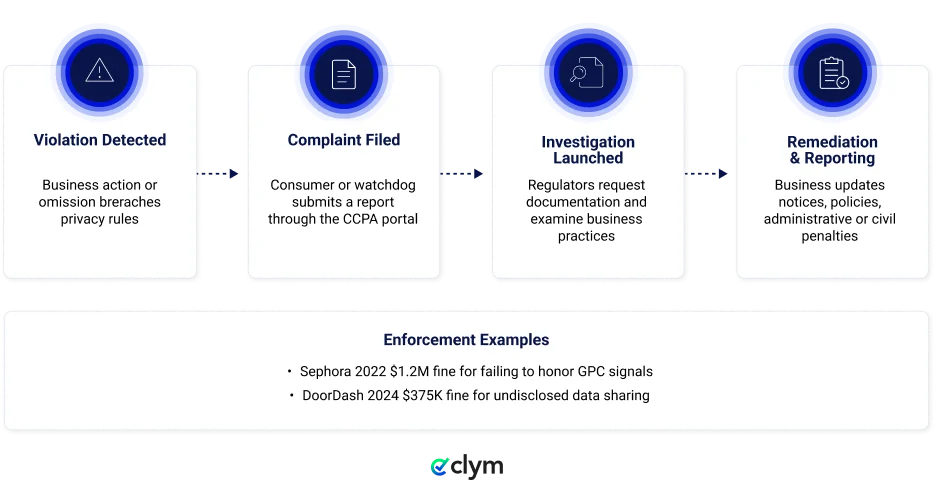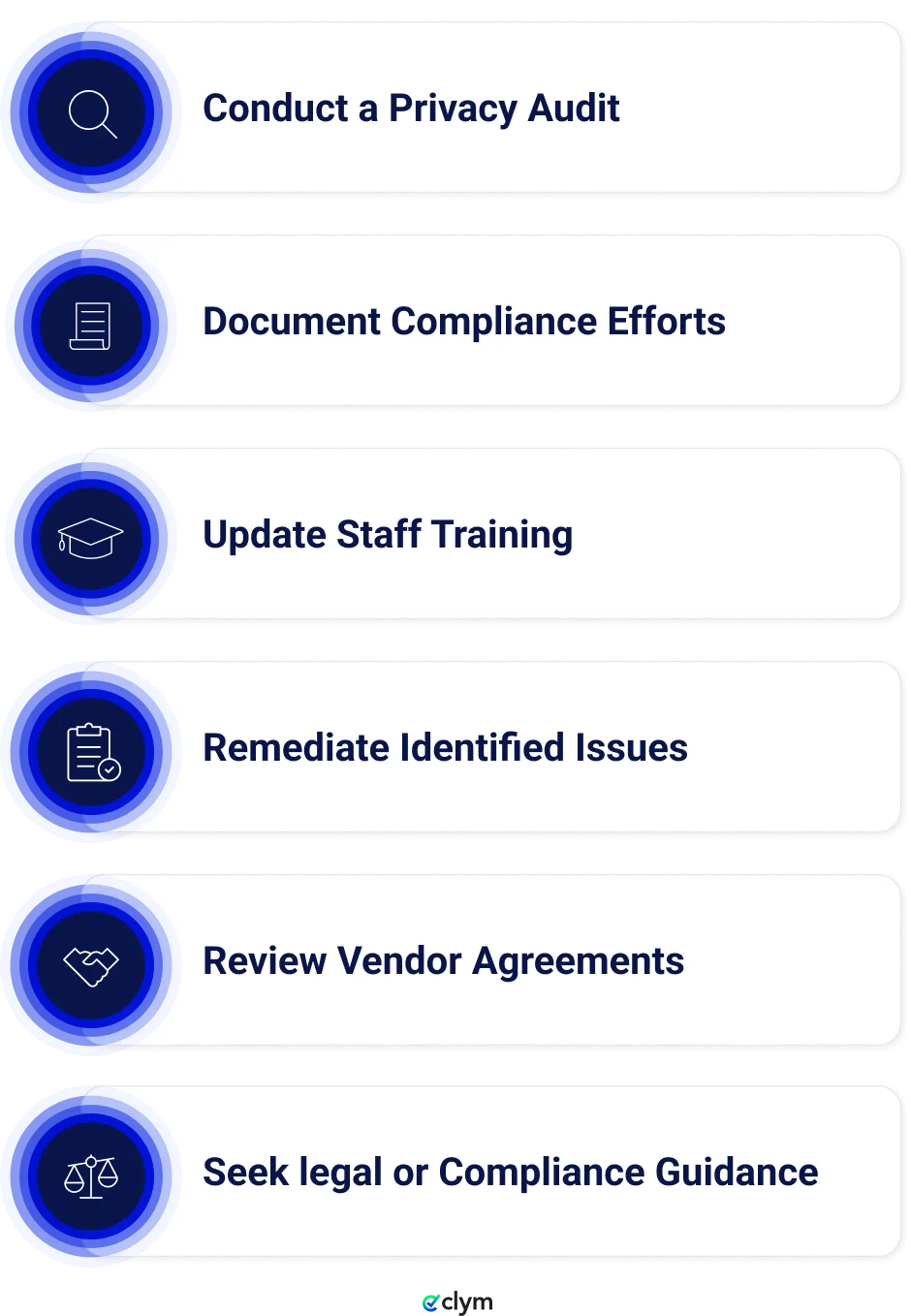The California Consumer Privacy Act (CCPA) is California’s primary data privacy law, granting residents rights over how their personal information is collected, used, and shared by businesses. If you are unsure whether the law applies to your organization, start with our CCPA applicability guide.
On December 17, 2024, the California Privacy Protection Agency (CPPA) announced inflation-based adjustments to certain monetary thresholds under the CCPA. These updated amounts take effect on January 1, 2025. Under California Civil Code §1798.199.95(d), penalty and statutory damage thresholds are periodically adjusted in odd-numbered years based on the Consumer Price Index (CPI).
Many businesses seek to find out the exact value of CCPA penalties, or CCPA fines, in order to understand their potential financial exposure. Organizations evaluating these risks should also review the broader requirements explained in our CCPA compliance guide for businesses, which outlines operational steps companies typically implement when managing CCPA obligations. Under California law, CCPA fines are assessed on a per-violation basis. This means that even a single compliance gap affecting thousands of consumers can multiply into significant CCPA penalties.
In this article we look at how CCPA fines, penalties, and enforcement actions work, what counts as a CCPA violation, how CCPA penalties are calculated per violation, when statutory damages apply, and how enforcement authorities determine the final CCPA fine amount.
Why the CCPA fine system changed in 2025: Updated penalty structure explained
Before 2025, the CCPA set maximum penalty caps, $2,500 for general violations and $7,500 for intentional or child-related violations, but it did not specify how those amounts should be applied or adjusted over time. This often left regulators with broad discretion and businesses uncertain about their potential exposure.
The 2024 CPPA notice did not change the underlying structure of CCPA penalties. Instead, it updated the statutory monetary thresholds to reflect inflation. Under the law, regulators may impose administrative fines of up to a specified amount per violation, and those thresholds are periodically adjusted to maintain their deterrent value.
As a result, businesses tracking CCPA penalties must monitor both statutory updates and inflation-based adjustments to understand the current maximum CCPA fine per violation.
While the statute establishes maximum penalties per violation, regulators retain discretion when determining enforcement actions. In practice, authorities may consider factors such as the scope of the violation, the number of affected consumers, the business’s response to the issue, and whether corrective steps were taken.
The framework aims to:
- Replace ambiguity with predictable fine ranges for similar violations.
- Emphasize proportionality by considering both business behavior and harm caused.
- Encourage organizations to act proactively and document privacy governance efforts.
For example, consider a digital marketing company that collects and sells consumer data without providing a clear opt-out link or properly disclosing third-party data sharing. To understand when such practices qualify as selling or sharing, review our article on what counts as selling or sharing under CCPA. Before the 2025 inflation adjustment, the statutory maximum penalties were $2,500 per violation and $7,500 for intentional violations or violations involving consumers under 16 years of age. The 2025 CPI adjustment increased those thresholds to $2,663 and $7,988 respectively, with the possibility of additional damages of $107–$799 per affected consumer.
CCPA fines and penalties 2026: Updated amounts and tiers explained
Under Cal. Civ. Code § 1798.155 and § 1798.199.90, the following fine amounts apply from January 1, 2025 and continue through 2026 unless adjusted for inflation.

